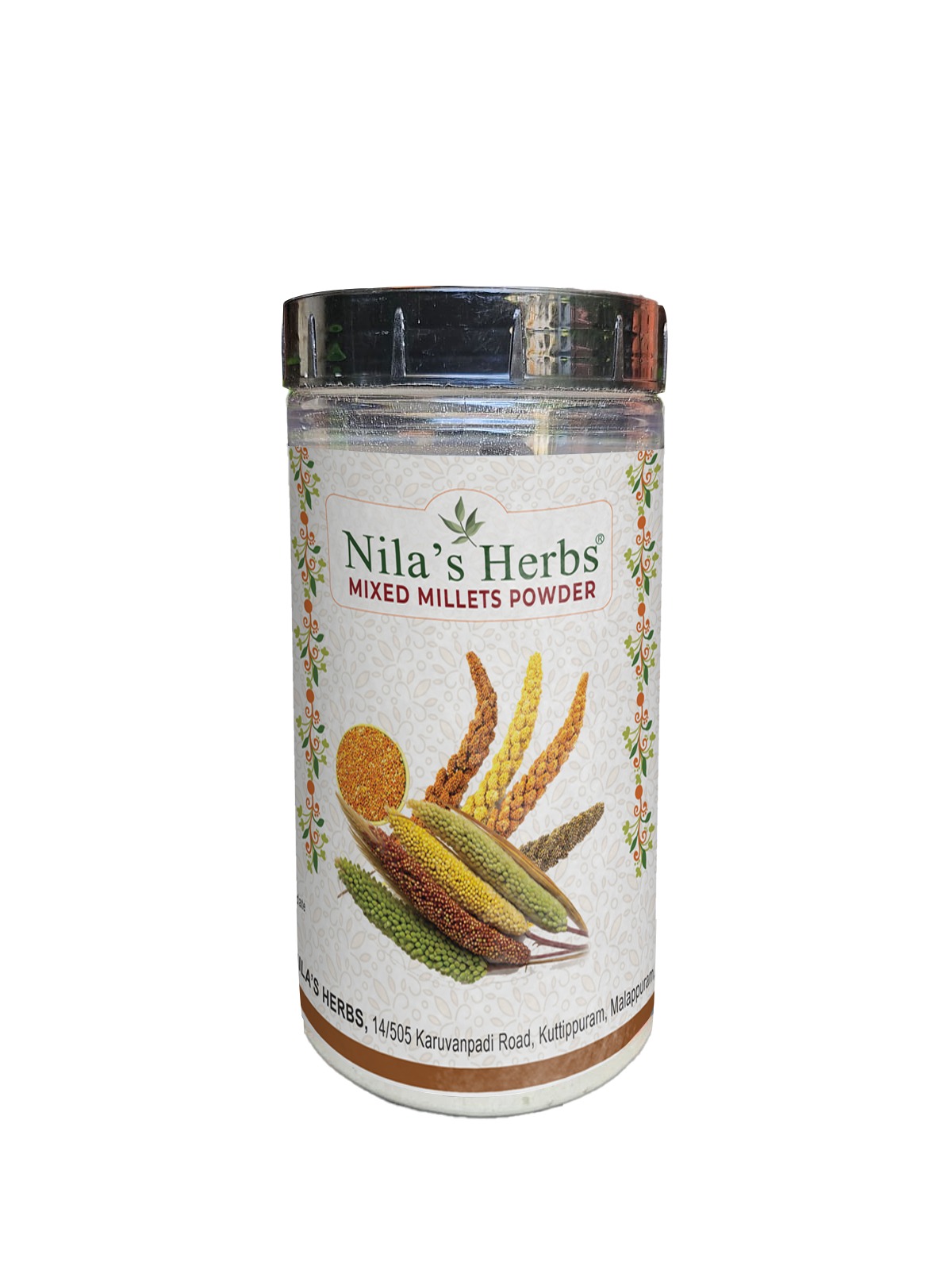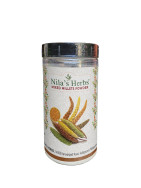Mixed Millets Powder 500 gms


In the Box
-------------
500 gms Pack of -1
Exp Date 6 Months
Description
Thinayari, Chamayari, Varaghu Rice, Pani Varaghu, Manicholam, Kambhu Ari, Kuthiravaali
---------------
Millets are a group of small-seeded grains that have been cultivated for thousands of years and have recently gained popularity due to their various health benefits and nutritional value. Some of the benefits of including millets in your diet include:
1. Nutritional Density: Millets are rich in nutrients such as vitamins, minerals (like iron, calcium, phosphorus), and essential amino acids. They are a good source of protein, dietary fiber, and antioxidants.
2. Gluten-Free: Millets are naturally gluten-free, making them an excellent alternative for people with celiac disease or gluten sensitivity.
3. Low Glycemic Index: They have a low glycemic index, which means they cause a slower rise in blood sugar levels compared to other grains like wheat and rice. This quality makes them beneficial for managing blood sugar levels and reducing the risk of diabetes.
4. Heart Health: Millets are known to be heart-healthy as they contain compounds that can help reduce cholesterol levels and lower the risk of cardiovascular diseases.
5. Digestive Health: The high fiber content in millets aids digestion, prevents constipation, and promotes a healthy digestive system.
6. Weight Management: Due to their high fiber content and low glycemic index, millets can contribute to a feeling of fullness, thus aiding in weight management by controlling appetite.
7. Rich in Antioxidants: Millets contain various antioxidants like polyphenols and carotenoids, which help in fighting oxidative stress and reducing the risk of chronic diseases.
8. Versatility in Cooking: Millets can be used in various culinary preparations like porridge, pilafs, salads, baked goods, and as a rice substitute, offering a diverse range of dishes to include in your diet.
9. Environmental Benefits: Millets are hardy crops that require minimal water and can grow well in dry regions. Cultivating millets can be environmentally sustainable due to their low water and input requirements compared to other grains.
10. Diverse Types: There are various types of millets such as pearl millet, foxtail millet, finger millet, sorghum, etc., each with its unique nutritional profile, allowing for a variety of choices.
Incorporating millets into your diet can offer a range of health benefits, but it's essential to ensure a balanced diet overall. Consulting a nutritionist or a healthcare professional can provide personalized guidance on how to incorporate millets or any specific dietary changes based on individual health needs.